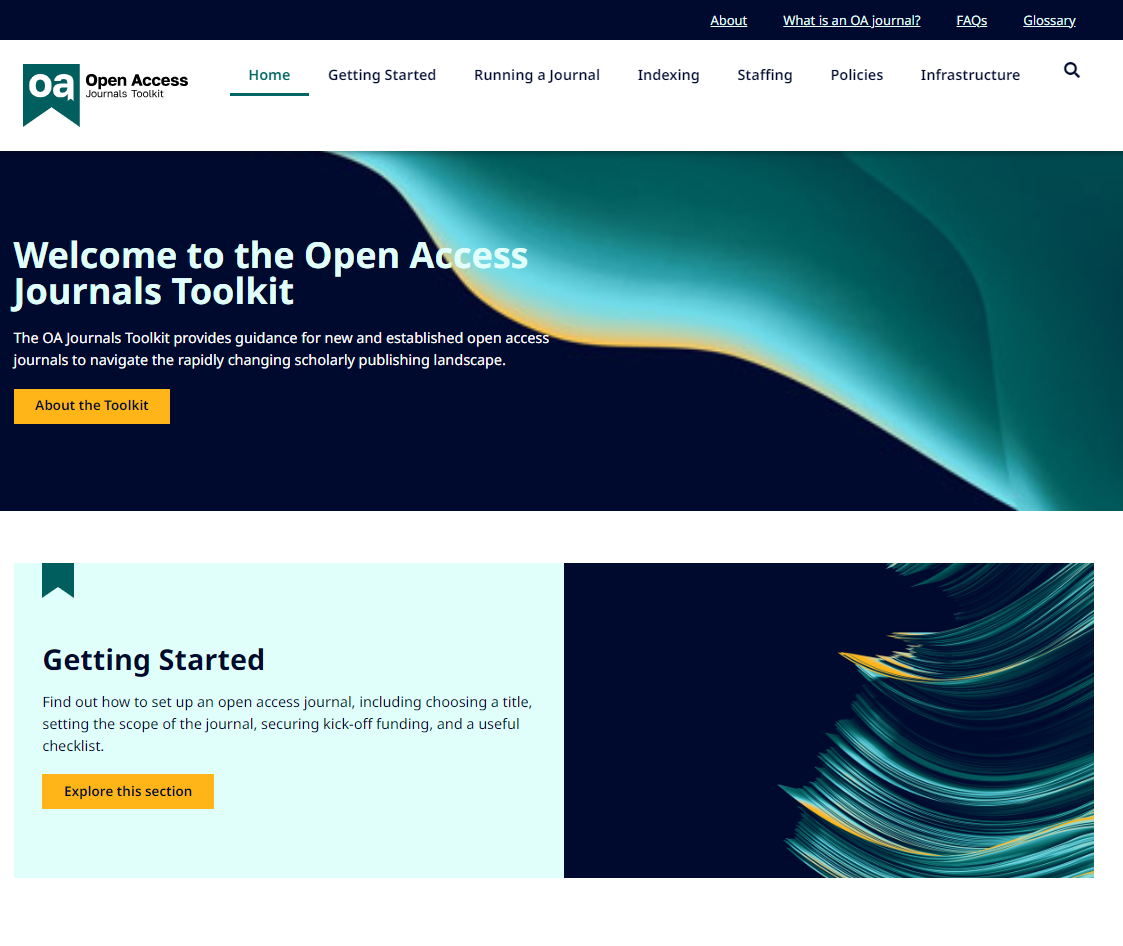The Open Access Scholarly Publishing Association (OASPA) and DOAJ (Directory of Open Access Journals) release today a new Open Access Journals Toolkit. The launch of the Toolkit marks a significant milestone in the efforts of OASPA and DOAJ to promote transparency, accessibility, and inclusivity in scholarly publishing. The Toolkit answers a need for an online resource to support new and established open access journals in navigating the rapidly changing landscape of open access publishing. The Open Access Journals Toolkit design process began in November 2022 and ended in June 2023 with this launch.
Intended for anyone involved in journal publishing and with a strong focus on helping under-resourced journals globally, the Toolkit enables empowered and informed decision-making. It will contribute to the advancement of scholarly publishing standards and best practices.
The Open Access Journals Toolkit is a collaborative project developed with input from a diverse editorial board. Key features of the Toolkit include:
- A user-friendly and accessible website with easy navigation and search functionality, adhering to W3C accessibility guidelines, making it simple for all users to find relevant information and resources, regardless of how they access the Internet.
- A curated collection of resources covering various aspects of open access publishing, such as editorial policies, licensing, metadata and indexing.
- Practical guidelines and templates to help publishers establish and maintain high-quality open access journals.
- A downloadable version to support those whose connections may not allow consistent browsing of the web version.
- Available in several languages, the French version launching shortly.

Dominic Mitchell, DOAJ Operations Manager, said: ‘Launching the Toolkit with OASPA is perfectly aligned with DOAJ’s mission to increase the impact of quality, peer-reviewed, open access scholarly research journals globally, regardless of discipline, geography or language. We have created a resource that aims to be globally relevant and up-to-date, with a dedicated editorial board. We look forward to the response and input from the community and to further additions to this great resource.’
Claire Redhead, OASPA’s Executive Director, said: ‘OASPA has been a home for small publishers and scholar-led journals since it was founded and has a strong, global community of members who are passionate people running journals in a wide range of disciplines. We field lots of questions related to running journals – particularly for people based in institutions without publishing support at hand. We’ve long wanted a central place to be able to point to that brings guidance and resources together in an easy-to-follow format that can be self-guided and easy to download or share, and we’re delighted to have had a fantastic editorial board to help us develop a toolkit that we hope will provide exactly that practical support for open access journals. It’s fantastic to see it launch, and it’s a great starting point – but we also welcome feedback from the community to help us develop it even further.’
OASPA and DOAJ are committed to supporting the global research community’s transition to open access.
To stay updated on the Open Access Journals Toolkit, visit oajournals-toolkit.org or follow OASPA and DOAJ on social media.
About OASPA:
The Open Access Scholarly Publishing Association (OASPA) is a diverse community of organisations engaged in open scholarship with a mission to encourage and enable open access as the predominant model of communication for scholarly outputs. OASPA works to advance open access and support a diverse, vibrant and healthy open access publishing community through advocacy, collaboration and the sharing of best practices and resources.
About DOAJ:
The Directory of Open Access Journals (DOAJ) is an online directory that indexes high-quality, peer-reviewed open access journals across all disciplines. DOAJ promotes best practices in open access publishing and serves as a trusted source of information for researchers, librarians and publishers worldwide.

One Comment